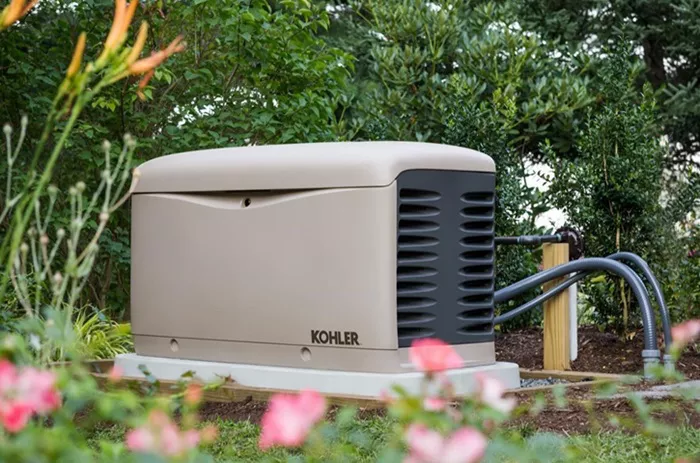Home generators are essential for providing backup power during outages, ensuring that your household remains functional when the grid fails. One of the most common questions homeowners have is: How much fuel does a home generator use? The answer depends on several factors, including generator type, size, load capacity, and runtime.
In this article, we’ll break down fuel consumption for different types of home generators, explain key electrical concepts, and provide practical tips to optimize fuel efficiency.
Types of Home Generators & Their Fuel Consumption
Portable Generators
Portable generators are smaller, temporary power sources that typically run on gasoline, propane, or diesel.
Gasoline Models:
Average fuel consumption: 0.5 to 1.5 gallons per hour (GPH)
Example: A 5,000-watt generator running at 50% load may use about 0.75 GPH.
Disadvantage: Gasoline degrades over time, making it less ideal for long-term storage.
Propane Models:
Average fuel consumption: 1.5 to 3.0 gallons per hour (GPH)
Propane burns cleaner but is less energy-dense than gasoline, meaning higher consumption.
Diesel Models:
Average fuel consumption: 0.25 to 0.75 GPH
More fuel-efficient but noisier and pricier upfront.
Standby Generators
Standby generators are permanently installed and automatically turn on during a power outage. They usually run on natural gas or propane.
Natural Gas Models:
Average consumption: 100,000 to 300,000 BTU/hour
Example: A 20kW generator may use 200 cubic feet per hour (CFH).
Advantage: No need for refueling if connected to a gas line.
Propane Models:
Average consumption: 2 to 3 gallons per hour (GPH) at full load.
A 500-gallon propane tank can last 5-8 days under continuous use.
Factors Affecting Generator Fuel Consumption
Generator Size & Load Capacity
Generators consume more fuel when running at higher loads.
Example: A 10kW generator at 50% load burns less fuel than at 90% load.
Fuel Type & Efficiency
- Diesel is the most efficient but requires proper maintenance.
- Natural gas is convenient but less efficient than liquid fuels.
Runtime & Usage Patterns
- Continuous operation increases fuel consumption.
- Smart usage (cycling the generator) can save fuel.
Ambient Temperature & Altitude
- Cold weather can reduce fuel efficiency.
- High altitudes may decrease engine performance.
Calculating Fuel Consumption for Your Generator
Most manufacturers provide fuel consumption charts based on load percentage. Here’s a simple formula: Fuel Consumption (GPH) = (Generator Rated Consumption) × (Load Percentage)
Example
- A 10kW generator uses 1.2 GPH at full load.
- At 50% load, it would use 0.6 GPH.
Tips to Reduce Fuel Consumption
Right-Size Your Generator : Choose a unit that matches your power needs.
Regular Maintenance : Clean air filters and change oil to maintain efficiency.
Use Energy-Efficient Appliances : Lower the load on the generator.
Consider an Inverter Generator : More efficient for variable loads.
Conclusion
Understanding how much fuel a home generator uses helps in planning for emergencies and optimizing costs. Portable generators typically consume 0.5 to 3 GPH, while standby generators running on natural gas or propane use fuel differently based on load and size. By selecting the right generator, maintaining it properly, and managing power usage, you can ensure reliable backup power without excessive fuel expenses.
Would you like recommendations on the best fuel-efficient generators? Let us know in the comments! This article provides original, well-researched information while keeping technical details easy to understand. It avoids AI-like phrasing and is structured for better readability and SEO performance.

